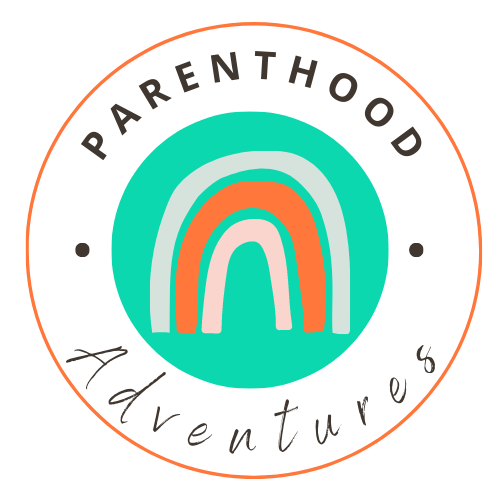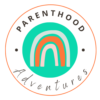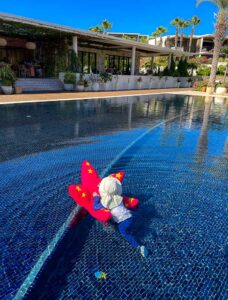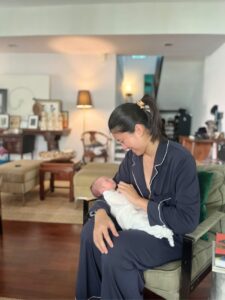When Postpartum Depression Hit, I Didn’t Recognize Myself
When I first became pregnant, I was excited, but another feeling crept in that I didn’t recognize – constant worry. I counted down the days of my first trimester, Googling each week how much less likely it was that I would miscarry. Extremely healthy behavior, I know.
Eventually I sought therapy for those first months, which helped me gain perspective and appreciate each day for what it was, though I knew if I eventually did become a mother, the worrying would probably never end.
The rest of my pregnancy was enjoyable. I felt powerful. I felt like a golden goddess. I was developing a new life, after all.
I felt good all the way until the last couple weeks, which were torture. I had on and off false labor and desperately wanted to avoid an induction, which I eventually had, and I believe the postpartum depression started before I had even given birth.
Breastfeeding and the Early Days
My birth experience was actually wonderful. I basked in the beauty of that moment all the way until the next day when I began to feel pain I couldn’t ignore in my nipples. Thus began what would be the toughest experience of my life – struggling with breastfeeding when I had been so sure that anything in life was attainable if you only wanted it badly enough.
Right away I was advised to triple feed, which means nursing, then pumping, then feeding that leftover milk to the baby. It’s the most exhausting, mentally and physically taxing work I’ve ever had to do. I was waking up every 4 hours at night and 2 hours during the day to pump. If I had an hour or so to nap, I had to make sure it didn’t interfere with my rigorous pumping schedule. It made it hard to get any sleep. I had so much anxiety I’d have nightmares over things going horribly, or would worry that my very capable mother or partner might run into an issue with the baby and need me.
I was sore, sad, and eventually so stressed out my supply went to almost zero.
I spent thousands of dollars on lactation consultants, going to appointments each week for months. It was one of the most frustrating experiences of my life when I could never replicate it successfully at home, they never agreed with each other, and the advice always put me last. Keep triple feeding. Keep pumping. Keep trying.
I hated that it couldn’t be as simple as just feeding my son. No, I had to pump, then feed him, wash bottles and pumps, then try to latch, over and over and over despite the exhaustion and heartbreak over my failure.
It’s very common for women to struggle with postpartum depression due to breastfeeding issues, and there is not enough support for women like us.
It felt like an exclusive club that all of the natural mamas had access to but I was denied. It made me feel like a failure at every turn living in a society that tells women we must breastfeed or otherwise, I’m very sorry, but your child will be much worse off.
Which is an unfair narrative that’s probably overstated anyway.
Being Diagnosed
Slowly the answers on the postpartum depression form at the pediatrician and follow up visits started to add up differently. I had many of the signs – I had strong anxiety, I didn’t see the joy in things the way I had before, and I had fleeting thoughts of just disappearing.
I remember texting a friend asking if she’d ever felt like her baby didn’t really need her. Like he’d be fine without her. She replied it was probably the PPD talking. My brain was telling me lies.
My OB gently urged me to just formula feed. But that wasn’t a solution to me at the time.
I think my doctor is wonderful, but I also think a tangible next step, referral, or something more might have been helpful. I could have asked, but I didn’t want to admit at the time that I had postpartum depression. That’s the crazy way it messes with your brain.
I Was Not Myself
In the weeks that followed I didn’t feel like me anymore. I cried almost every day, started snapping at my mom and partner, which felt terrible, and didn’t feel in control of my emotions. I had a few days where I couldn’t get out of bed at all. I’d been a generally positive person before this, and I didn’t recognize who I saw in the mirror anymore.
We also had some house guests at the time who didn’t appreciate the difficulty I was having, and I really wish I’d been able to have my sanctuary. I needed it, and looking back, I wish I’d been able to ask for it.
I had also expected to be able to get back to work sooner than I was able to. I run my own business and in the US, there isn’t any paid leave offered to new mothers, so I watched as my business suffered without me.
I hadn’t anticipated what a struggle it would be to find a nanny, and as much as I loved my son, I went into the pregnancy strongly feeling that it takes a village, and that we’d both be better off if I had extra help.
We don’t get enough support postpartum, and I hope that changes in the future.
There’s so much I would change in hindsight, but you don’t see it when you’re in the thick of it and I didn’t have a crystal ball.
How I’m Doing Now
In the months that have followed that dark time, little by little I’ve come out of it.
Once I had my home to myself again, it helped a lot. We also found help watching my son, and he and I both love his nanny. Being able to work again has given me part of my identity back. Being able to exercise again has also helped.
It also helped when I finally decided to stop trying to breastfeed. I’ve been exclusively pumping and combo feeding since then (and am SO thankful for wearable pumps), and dropped down to 7 pumps per day from 10, then down to 6 once he hit 6 months. It’s still a lot of work, and I don’t totally meet his needs, but it’s what I can do for now and I’m letting it be enough.
Little milestones with my son helped as well – the first time I saw him take interest in looking at my face, his first smile, his first laugh, the first time we took a trip, his first passport appointment, that first stamp, and each day that I walk into the room when he wakes up from a nap and watch him flap his arms and legs in excitement to see me. I know now that he does need me.
For the first time a couple of weeks ago, I realized I was totally happy.
In some ways, it has been a blessing in that it’s helped me to understand people in my life better who struggle with their mental health. Of course I wish I didn’t have to learn firsthand, but it’s part of my story now, and maybe it will help me to offer support to someone in the future who really needs it.
To anyone who needs to hear this – you’re not broken. There’s nothing wrong with you. It’s okay to seek help. Plenty of people take medication to get better as well, and you and your doctor might decide that’s best.
Being a new mom isn’t easy, but despite it all, I wouldn’t take it back. I understand what people mean when they say it’s the hardest thing they’ve ever done now, but that doesn’t mean it’s not rewarding and worthwhile. I had many bumps in the early days, and I don’t wish we could go backwards, but I’m thankful for my experience, too.








I needed to read this! I had a (controversial) breast reduction surgery at sixteen years old. I’m not sure if I’ll be able to breastfeed and it worries me every day for many of the reasons you experienced when trying. I blame myself, even though I was so young at the time of the surgery. It’s hard to stay strong but it’s helpful to know I am not alone. Thanks for sharing.